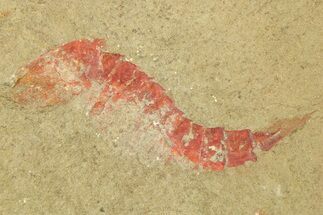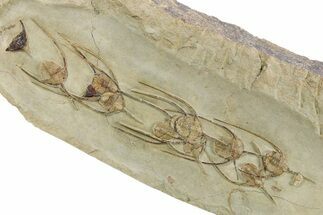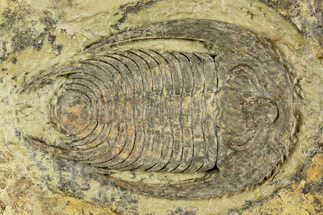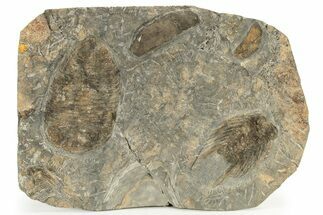This Specimen has been sold.
Two Stunningly Prepared Foulonia Trilobites With Two Lonchodomas
This is a trilobite fossil where the preparation just leaves you in awe. It features a pair of large Foulonia trilobites and a pair of Lonchodomas trilobites from the Upper Fezouata Formation of Morocco. They are all quite large for the species with the large Foulonia being 2.9"
The preparation this piece is phenomenal with several of the trilobites been undercut to bring them out in high relief against the rock. A really aesthetic display piece.
The preparation this piece is phenomenal with several of the trilobites been undercut to bring them out in high relief against the rock. A really aesthetic display piece.
About Trilobites
Trilobites are an extinct class of marine arthropods that thrived for nearly 270 million years, from the early Cambrian to the end of the Permian period (around 521 to 252 million years ago). They are one of the most successful and diverse groups in the history of life, with over 25,000 described species spanning a wide range of sizes, shapes, and ecological niches. Known for their distinctive, segmented exoskeletons, trilobites provide invaluable insights into the evolutionary history of arthropods and the dynamics of ancient marine ecosystems.
Trilobites are an extinct class of marine arthropods that thrived for nearly 270 million years, from the early Cambrian to the end of the Permian period (around 521 to 252 million years ago). They are one of the most successful and diverse groups in the history of life, with over 25,000 described species spanning a wide range of sizes, shapes, and ecological niches. Known for their distinctive, segmented exoskeletons, trilobites provide invaluable insights into the evolutionary history of arthropods and the dynamics of ancient marine ecosystems.
SPECIES
Foulonia sp. & Lonchodomas sp.
LOCATION
Zagora Area, Morocco
FORMATION
Upper Fezouata Formation
SIZE
Largest trilobite 2.9", shale 10 x 6.8"
CATEGORY
SUB CATEGORY
ITEM
#215159
We guarantee the authenticity of all of our specimens.
 Reviews
Reviews













